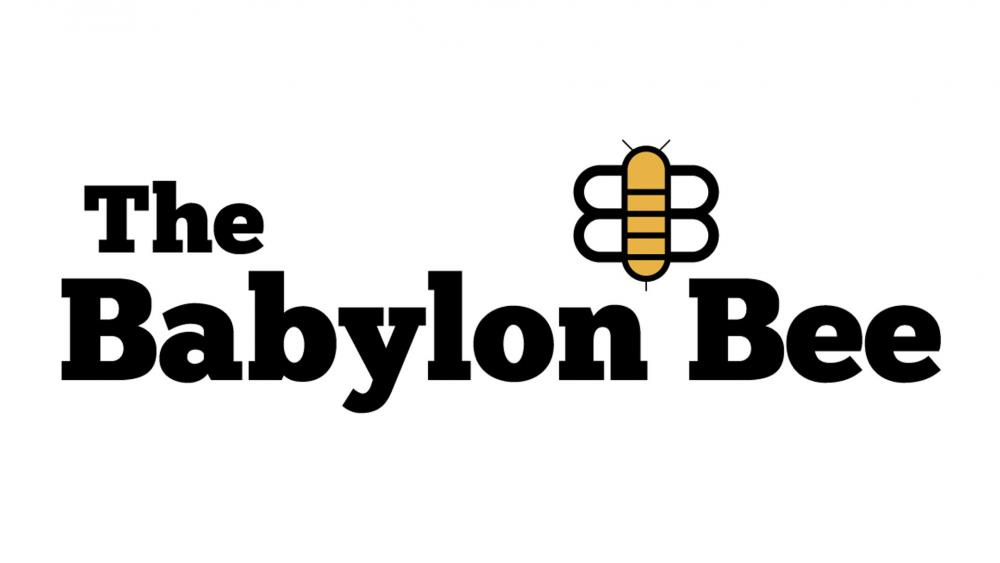Why study fictional faiths?
Also, the blurry line between Christian satire and fake news
Hello and welcome back to Throwaway Relics. If you could please do me a favour and forward this email to a friend who might like it, that would be ace! If you’re new to this newsletter, you can subscribe below:
And don’t forget, this is intended to be an interfaith space.
If you have a tip or a post I should see, especially about a religion you don’t hear about all that often, please email me: rohansalmond@gmail.com. Also, follow me on Twitter: @RJSalmond.
Oh, it’s Trinity Sunday? Time for the Koolaid Man
Yep, every Christian cleric’s least favourite day to preach arrived and brought with it some spicy Trinitarian takes, as well as the Shield of the Koolaid Man:
Is it a modalist heresy? Feel free to sound off in the comments, but you’re still going to see it every year. Hey, at least it's not the “Trinity Heart Shamrock”, but it’s got nothing on “Nicole Kid Man”.
If you’re curious, I preached Trinity Sunday in my own church community this year (sermon starts at 31 minutes). My minister sent me this video afterward.
‘X is like a religion’
You know when there’s a meme so long-running you can’t even remember its origin, or even if it’s an internet thing at all? So it is with “X is like a religion”.
It’s possible it was popularised by Tucker Carleson in this clip from 2018, but it could have originated with the book, Desiring the Kingdom: Worship, Worldview and Cultural Formation by James K A Smith in 2009. Or maybe somewhere else! If you know, please tell me!
Regardless, a quick search for “liberalism is like a religion” on Twitter shows it’s a favourite talking point for American right-wing culture warriors, and a favourite target of ridicule for their opponents, who consistantly riff on the phrase.
Religion-ness has since been ascribed with varying degrees of sincerity to atheism, fandom, academic theology, a functioning capitalist state, integralism, wokeness, and even Christianity.
Please enjoy my favourite video from the internet this week
Let’s talk about Zelda
Surprise! People who do religion studies are nerds. Therefore, they care very deeply about the Legend of Zelda.
This week I thoroughly enjoyed this episode of the Religion and Pop Culture Podcast about applying the study of mythology to Nintendo’s Zelda universe.
Co-host Vivian Asimos also made this video essay about Breath of the Wild’s sacred landscape. She does a lot of work that is extremely my areas, including her book Digital Mythology and the Internet's Monster, a study of the modern mythology of Slender Man. Unfortunately, I haven’t read the book because it costs… up to $170. Academic publishing, am I right?
Anyway, I’m reminded of this video by Religion for Breakfast, a religion studies YouTuber I’ve been supporting on Patreon for a few years now:
It applies the study of religion more directly to the fictional religion found in the games.
Doing religion studies on fictional texts could seem a little goofy, but in the end it was a good introduction for me on how the discipline works, as well as giving me a new insight into a franchise I’ve loved for many years now. The fictional religion found in Zelda has obvious references to real world faiths, and studying these can give us an indication about what the creators of the game believe. Also, it’s fun, so why not?
Looking forward to Beyonce’s new cottagecore album
A little history on the Babylon Bee

Making religious knockoffs of already popular things is a long, ignoble tradition (one continued by this very newsletter!) So, is it any wonder that after The Onion started publishing online in 1996, The Babylon Bee followed, er, 20 years later?
It started out making fun of prosperity gospel preachers like Joel Osteen and Jan Crouch (who, yes, was a con artist and almost certainly a homophobe, but whose wigs were stratospheric enough that I consider her a gay icon).
Like most Christian knockoffs, the Bee was mostly second rate, but funny and harmless enough. It even had a few moments of greatness (eg: “Hillsong United Releases Album Of Justin Bieber Covers” and “How To Have a Godly Halloween”).
That was until it was acquired by free speech enthusiast Seth Dillon, who has taken the Bee in an increasingly right-wing direction. In response to widespread condemnation of the Israeli military’s destruction of a civilian apartment building in Gaza containing AP and Al Jazeera media offices, the Bee wrote, “Luke Skywalker Condemned For Blowing Up Associated Press Office Located On Death Star”. It also has a strange obsession with Alexandria Ocasio-Cortez.
That’s not to mention the Babylon Bee’s long-running feud with the fact-checking website Snopes. It all started with the article, “CNN Purchases Industrial-Sized Washing Machine To Spin News Before Publication”, which nearly got the Bee banned from Facebook. Later, Donald Trump retweeted an article titled, “Twitter Shuts Down Entire Network To Slow Spread Of Negative Biden News”, not realising the Bee presents itself as satire. BuzzFeed can fill in the rest.
The worst bit is that The Onion’s spinoff publication Clickhole has been killing it with Christian satire on-and-off for years, demonstrating what the Babylon Bee could, well, be if it weren’t so caught up in winning brownie points in the culture war:
- Sorry, Religious Idiots, But If Jesus Is The Only Path To Salvation, Would He Even Forgive A Sinner Like Me?
- Getting Out Of Hand: The Children In This Sunday School Class Are Overwhelmingly Siding With Pontius Pilate
- A Crisis Of Faith: Pope Francis Has Left The Catholic Church To Worship A Monster Truck He Saw Flatten 30 School Busses
A few other things:
- Did… did someone make a Catholic version of Cards Against Humanity?
- A Bible meme for pious teens
- The Baptist rosary
- ☪☮e✡i☯✝
- A thread comparing trains to angels
If you’ve noticed an error or you know something I’ve neglected to mention, please email me about it! Also, if you’ve gotten to the end of this post but you’re not subscribed yet, please sign up! It’s free!

